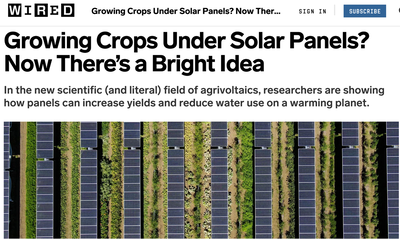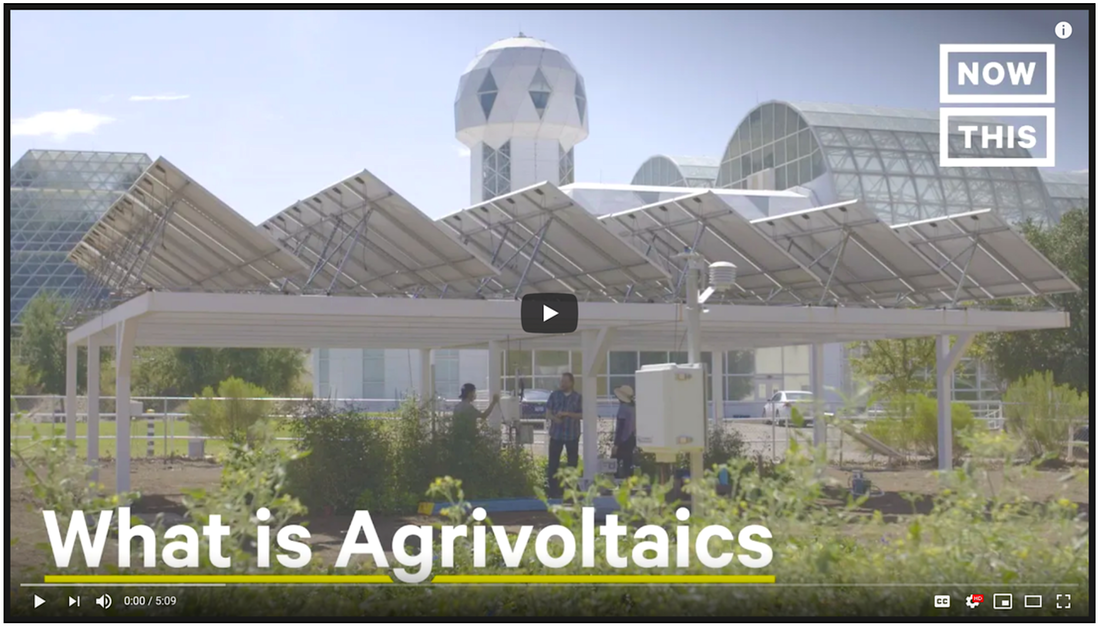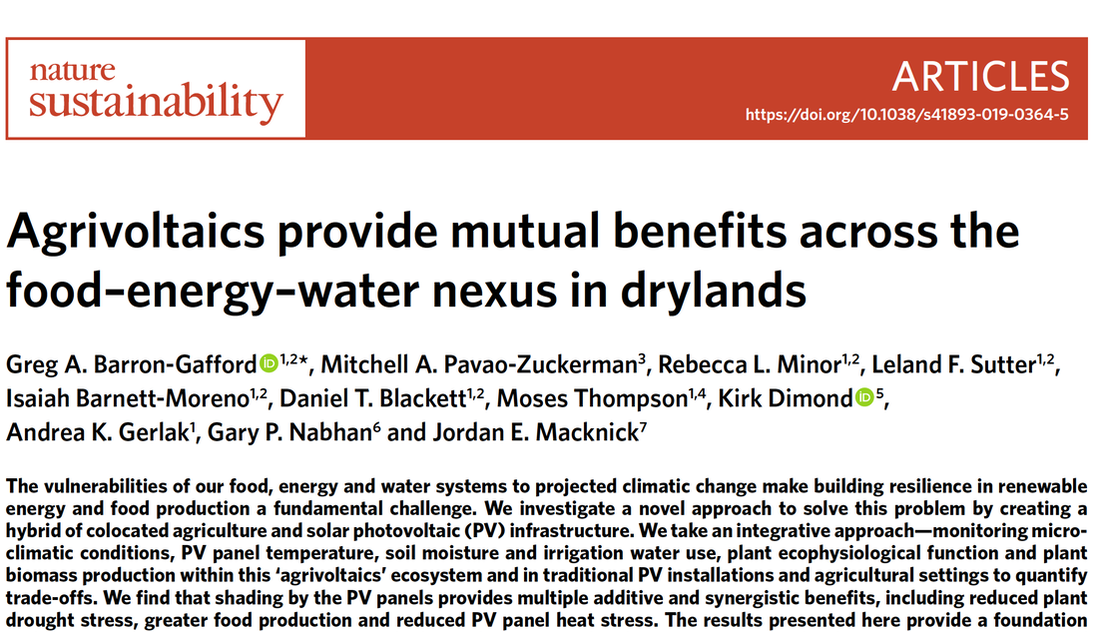Agrivoltaics / Los Agrivoltaicos:
Studying resilient solutions requires an interdisciplinary, GLOBAL team!
We are physical, social, political, and biological scientists and engineers from around the globe working together to understand the impacts and potential of agrivoltaics in community.
We study food systems, we build experiential learning around agrivoltaics, and we value diversity.
We are physical, social, political, and biological scientists and engineers from around the globe working together to understand the impacts and potential of agrivoltaics in community.
We study food systems, we build experiential learning around agrivoltaics, and we value diversity.
¡Estudiar soluciones resilientes requiere un equipo GLOBAL interdisciplinario!
Somos científicos e ingenieros físicos, sociales, políticos y biológicos de todo el mundo que trabajamos juntos para comprender los impactos y el potencial de la agrovoltaica en la comunidad. Estudiamos los sistemas alimentarios, generamos aprendizaje experiencial en torno a los agrovoltaicos y valoramos la diversidad.
Somos científicos e ingenieros físicos, sociales, políticos y biológicos de todo el mundo que trabajamos juntos para comprender los impactos y el potencial de la agrovoltaica en la comunidad. Estudiamos los sistemas alimentarios, generamos aprendizaje experiencial en torno a los agrovoltaicos y valoramos la diversidad.
Agrivoltaics = agriculture + photovoltaics
creating benefits across food, energy, & water systems
creating benefits across food, energy, & water systems
Why might this benefit agricultural plants?
Plants need sunlight. The truth is, though, that plants don't continue to do increasingly well as you add more sunlight. At some point, their potential to use the sunlight for photosynthesis plateaus out, and if they experience too much light, they can actually become less productive. Think about it - plants in drylands have adapted to deal with the excessive amount of energy in lots of cool ways. Unfortunately, many of our agricultural plants are not desert adapted; we make up for this lack of adaptation by giving them plenty of water through irrigation.
What if we mimicked nature? One desert adaptation is to grow the shade of another plant. How might the shade of a solar panel array overhead lead to cooler temperatures and less excessive sunlight for agricultural plants? Our preliminary work suggests that there are measurable benefits for some species!
Why might this benefit renewable energy production?
Larger solar installations create a heat island effect, and that is bad for the PV panels because as they get too hot, they become less efficient. We are working to bring back or keep agriculture production in the understory of PV panels because every time plants open their pores (stomata) to let in carbon dioxide for photosynthesis, water escapes. That escaping water (transpiration) could serve to cool the PV panels overhead!
Such a simple concept that can potentially have a big impact? Yeah, we had our doubts too until we documented the cooling in our experiments!
Why might this benefit water resources?
Water evaporates away more slowly in the shade, no? If we reduce the direct sunlight hitting the soil, water from each irrigation event will remain in the soil longer to do the work we put it there to do - sustain plants! As more parts of the world experience intense water stress, this outcome of an agrivoltaics approach is going to become even more important!
Why might this benefit people?
In addition to potentially producing equal or greater amounts of food and renewable energy with reduced water use, we anticipate our agrivoltaics approach to help humans in 2 key ways:
1. Drylands are often really hot environments, making our farm worker population prone to heat stroke and heat-related death. Our preliminary data suggests that skin temperatures can be up to 20°F cooler when working under the PV array! That makes for significantly more comfortable working conditions!
2. We have partnered with the UofA Community & School Garden Program to help educate our next generation about all aspects of STEM (Science, Technology, Engineering, & Math), while integrating art and ecology. See more about our Agrivoltaics Learning Labs below.
Be sure and check out our News! section to see how #agrivoltaics is catching on in the popular media
Asegúrate de consultar nuestras Noticias! sección para ver cómo #LosAgrivoltaicos está ganando popularidad en los medios populares


